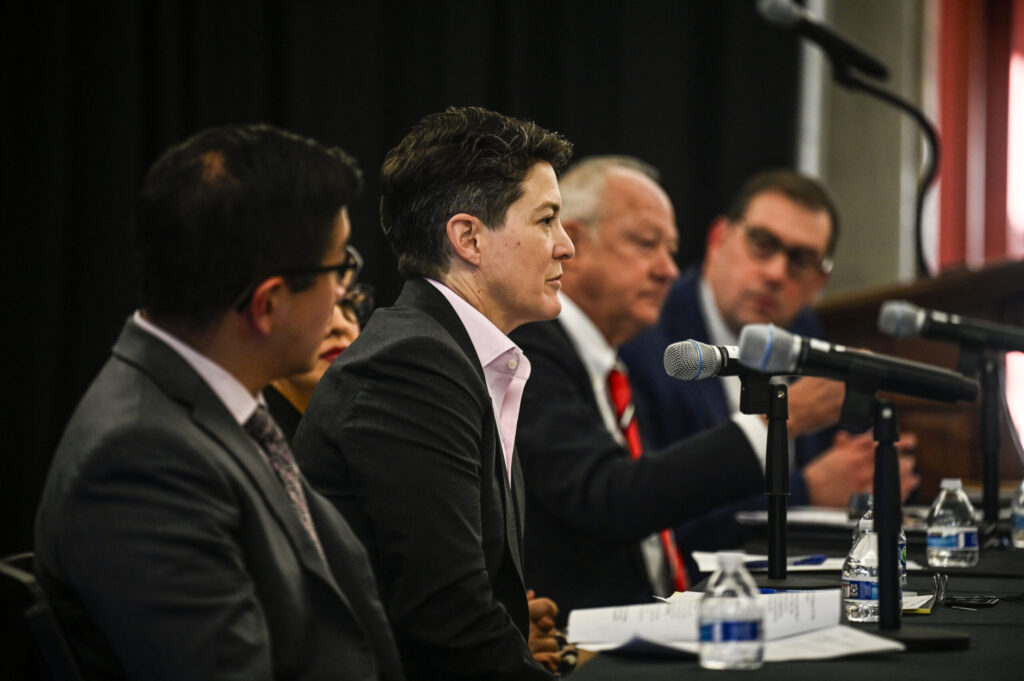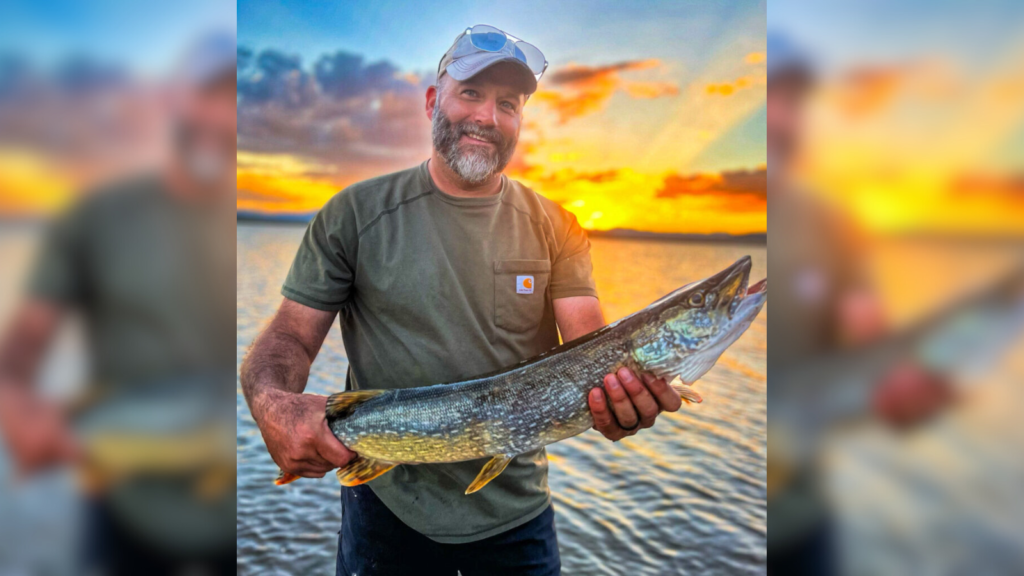Former Alamosa County social worker may be held liable for faulty child abuse conviction, court rules

A former Alamosa County caseworker may be held liable for the false confession contained in her notes that was used to convict a mother of child abuse, the Denver-based federal appeals court ruled on Thursday.
By a 2-1 decision, a panel of the U.S. Court of Appeals for the 10th Circuit decided that Marcia Tuggle, a onetime employee of Alamosa County’s social services department, did not deserve immunity for reportedly fabricating Krystal O’Connell’s admission that she abused her toddler shortly before his death in 2003.
Although qualified immunity is meant to shield government employees from civil lawsuits when they act in good faith, the panel’s majority determined that Tuggle knew that her inaccurate notes, taken during an interview with O’Connell, would be used in the criminal investigation. As a result, her alleged conduct affected O’Connell’s constitutional right to a fair trial.
“Given that knowledge, any reasonable social worker in Ms. Tuggle’s position would have known that lying about a confession would contribute to the prosecution of Ms. O’Connell for child abuse,” wrote Judge Robert E. Bacharach for himself and Judge Allison H. Eid.
O’Connell’s case is well-known in Colorado and is even listed on the National Registry of Exonerations. On Jan. 31, 2003, Krystal Voss, as she was known at the time, took her 17-month-old son, Kyran, to the emergency department. She had left him in the care of a babysitter, Patrick Ramirez, and Kyran had fallen off of Ramirez’s shoulders.
Sgt. Harry Alejo with the Alamosa County Sheriff’s Office interviewed Ramirez and reportedly voiced his belief that Ramirez was lying. Days later, Ramirez maintained that Kyran’s death was an accident, and admitted to using marijuana and drinking beer the day of the fall. Afterward, Ramirez was arrested.
On Feb. 4, 2003, Alejo introduced O’Connell and her husband to Tuggle. O’Connell had stayed at the hospital for four nights, sleeping in a chair in Kyran’s room. She would later testify that Alejo asked her husband to leave the meeting.
“Krystal then started crying and said that [Kyran] had been crying a lot on Thursday night,” Tuggle wrote to prosecutors, based on her notes. O’Connell said “she had shook [Kyran] ‘really hard’ and then ‘slammed him on the bed’. After ‘slamming’ him … she remembers rubbing his stomach a lot and says that she thinks she might have hurt him.”
Tuggle’s notes also reported that Ramirez, after spending multiple nights in jail, said he “had lots of time to think about the situation and realized that Krystal and [her husband] were trying to get him to take the rap for something they had done.”
Kyran later died from his injuries. At trial, O’Connell denied that she said she slammed her son on the bed.
“Sergeant Alejo had said, you know, ‘The doctors are still saying this doesn’t match up. Maybe you slammed [Kyran] into the floor when you moved him to the other side. Didn’t you slam him into the floor? ‘… And I denied all of that. I said, ‘No, I did not slam my child. I did not slam him’,” O’Connell testified.
In November 2004, a jury convicted O’Connell of child abuse resulting in death. She received 20 years in prison. Ramirez pleaded guilty to evidence tampering and reckless endangerment, and received a one-year sentence.
Although the Colorado Court of Appeals upheld her conviction, the chief district court judge determined O’Connell had received ineffective assistance of counsel. The outcome of the trial would have been different had her lawyer pursued evidence that suggested Kyran’s injuries were the result of falling from Ramirez’s shoulder as he originally claimed.
Following the ruling, the district attorney’s office opted not to re-try O’Connell for her son’s death, although it insisted her freedom did not amount to an exoneration.
Following her release, in which she had served half of her 20-year sentence, O’Connell filed a civil lawsuit against Alejo, Tuggle and Alamosa County. She accused Alejo of telling her to write down that she abused her son, and did so because she was worried the government would take him away.
“Defendant Alejo refused to accept the fact that the entire tragedy was an accident when Ms. O’Connell truthfully told him she was not there,” O’Connell wrote in her federal complaint. “Ms. O’Connell, her will overborne, felt that she had no choice but to write the confession that Defendant Alejo fabricated.”
As for Tuggle, O’Connell claimed she fabricated O’Connell’s admissions of guilt that were later used as evidence at trial.
Alejo and Tuggle asked the federal court to find the two government employees were entitled to qualified immunity. In March 2020, U.S. District Court Senior Judge R. Brooke Jackson denied the request.
Alejo allegedly applied for an arrest warrant based on a false confession, which was a clearly-established constitutional violation, Jackson noted. For Tuggle, he wrote that prior court cases, “and, frankly, common sense … clearly established that a social worker, like any other public official, cannot knowingly create false information in furtherance of an investigation.”
Tuggle appealed his decision to the 10th Circuit, arguing no court case had clearly established that it violated a person’s legal rights for a caseworker, as opposed to a police officer, to fabricate statements as part of a social services investigation.
“That’s the distinction we’re making here. She was acting in her capacity as a social worker investigating child abuse as part of social services. She was not investigating whether a crime had been committed and who committed that crime,” her lawyer, Jeffrey Driscoll, told the appellate panel in January.
Elizabeth Wang, representing O’Connell, called that position untenable.
“What the court’s cases have said is that qualified immunity is there to protect somebody who might not know that their conduct is on the line [between reasonable and unreasonable]. It’s to give them breathing room to make mistakes,” she said. “This is an intentional, deliberate fabrication of false evidence. This is not some social worker who was diligently going about her duties and made a mistake.”
The 10th Circuit panel’s majority decided Tuggle knew her notes would be used in the criminal investigation into Kyran’s injuries, and not simply for child welfare proceedings. Furthermore, previous court cases established that a defendant’s constitutional rights are affected when the government knowingly uses false testimony to get a conviction, and a person in Tuggle’s position would have known that a record of a false confession would be used to prosecute O’Connell.
“Ms. Tuggle had watched Sergeant Alejo accuse Ms. O’Connell of child abuse,” wrote Bacharach in the court’s Dec. 16 order. “And Ms. Tuggle knew that in the criminal investigation, her agency would need to share her notes with the sheriff’s office.”
The majority upheld Jackson’s denial of qualified immunity.
Senior Judge Mary Beck Briscoe dissented. She was not convinced that Tuggle was aware that her notes – taken while a sheriff’s sergeant was actively involved in the questioning – would necessarily end up in O’Connell’s prosecution. Consequently, Briscoe could not say that Tuggle violated O’Connell’s rights.
“I am not condoning the misconduct alleged in this case,” Briscoe wrote. “Yet, neither common sense nor our prior case law would have informed Defendant that she could not [falsify a confession] for constitutional reasons, as opposed to some general, moral reason.”
Jackson previously set an eight-day jury trial to begin on May 2, 2022.
The case is O’Connell v. Alejo et al.














